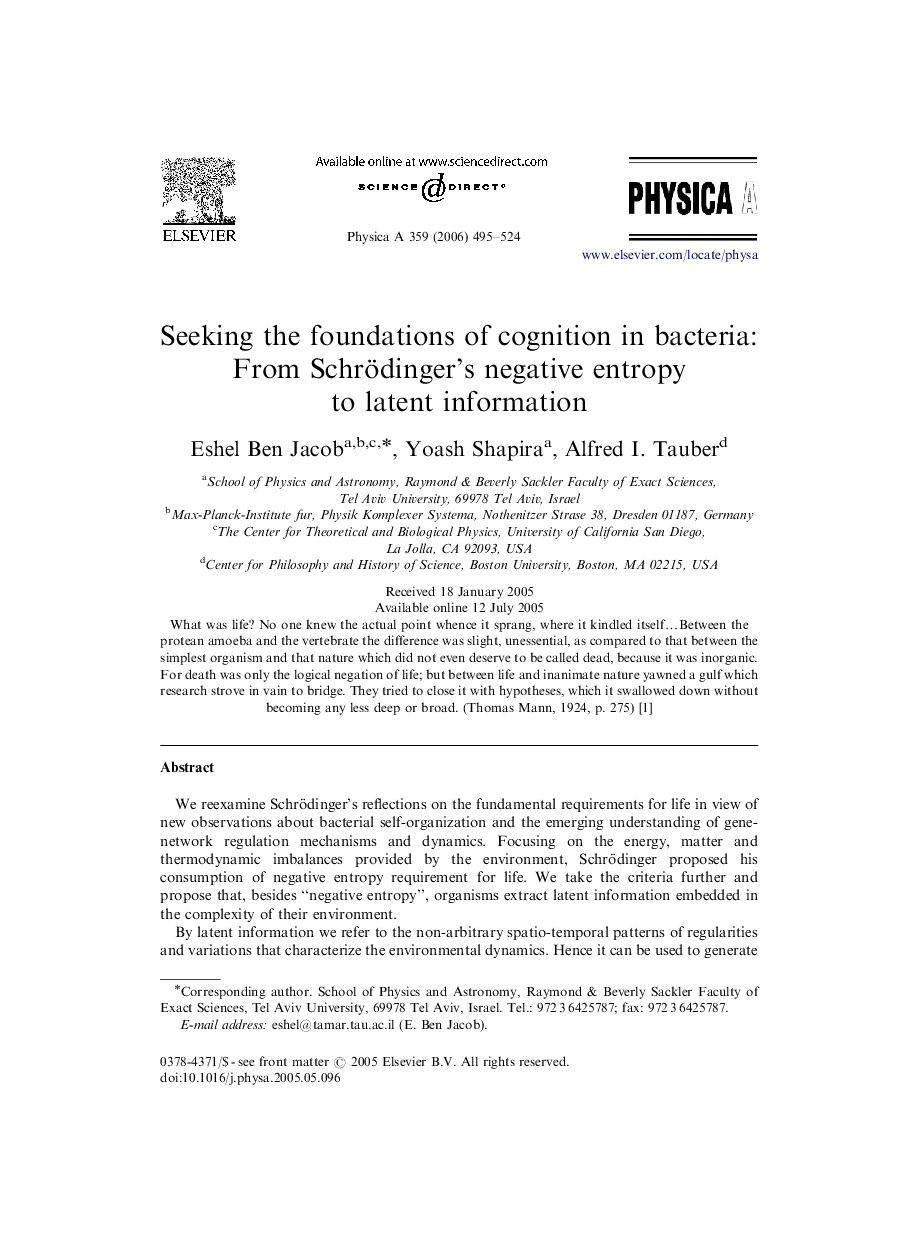| کد مقاله | کد نشریه | سال انتشار | مقاله انگلیسی | نسخه تمام متن |
|---|---|---|---|---|
| 978815 | 1480201 | 2006 | 30 صفحه PDF | دانلود رایگان |

We reexamine Schrödinger's reflections on the fundamental requirements for life in view of new observations about bacterial self-organization and the emerging understanding of gene-network regulation mechanisms and dynamics. Focusing on the energy, matter and thermodynamic imbalances provided by the environment, Schrödinger proposed his consumption of negative entropy requirement for life. We take the criteria further and propose that, besides “negative entropy”, organisms extract latent information embedded in the complexity of their environment.By latent information we refer to the non-arbitrary spatio-temporal patterns of regularities and variations that characterize the environmental dynamics. Hence it can be used to generate an internal condensed description (model or usable information) of the environment which guides the organisms functioning.Accordingly, we propose that Schrödinger's criterion of “consumption of negative entropy” is not sufficient and “consumption of latent information” is an additional fundamental requirement of Life. In other words, all organisms, including bacteria, the most primitive (fundamental) ones, must be able to sense the environment and perform internal information processing for thriving on latent information embedded in the complexity of their environment.We then propose that by acting together, bacteria can perform this most elementary cognitive function more efficiently as can be illustrated by their cooperative behavior (colonial or inter-cellular self-organization). As a member of a complex superorganism—the colony—each unit (bacteria) must possess the ability to sense and communicate with the other units comprising the collective and perform its task within a distribution of tasks. Bacterial communication thus entails collective sensing and cooperativity. The fundamental (primitive) elements of cognition in such systems include interpretation of (chemical) messages, distinction between internal and external information, and some self vs., non-self distinction (peers and cheaters).We outline how intra-cellular self-organization together with genome plasticity and membrane dynamics might, in principle, provide the intra-cellular mechanisms needed for these fundamental cognitive functions. In regard to intra-cellular processes, Schrödinger postulated that new physics is needed to explain the convertion of the genetically stored information into a functioning cell. At present, his ontogenetic dilemma is generally perceived to be solved and is attributed to a lack of knowledge when it was proposed. So it is widely accepted that there is no need for some unknown laws of physics to explain cellular ontogenetic development. We take a different view and in Schrödinger's foot steps suggest that yet unknown physics principles of self-organization in open systems are missing for understanding how to assemble the cell's component into an information-based functioning “machine”.
Journal: Physica A: Statistical Mechanics and its Applications - Volume 359, 1 January 2006, Pages 495–524